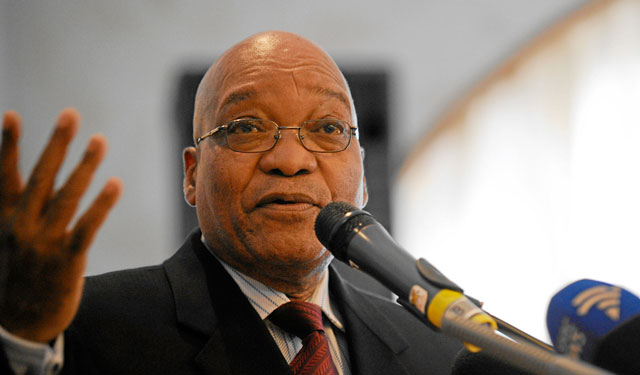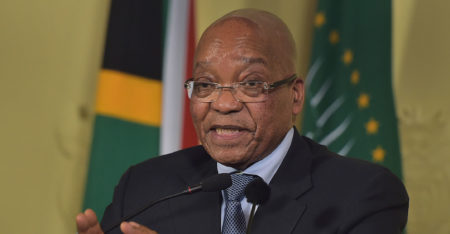
Government has clarified President Jacob Zuma’s role in the leadership of state-owned enterprises (SOEs) amid allegations of state capture where the Guptas use their friendship with Zuma as a way of winning contracts in the critical sector.
The Guptas have been central figures in the narrative of state capture, with allegations of using undue influence to get preferential treatment at SOEs such as Eskom. They ardently deny such tactics.
The Guptas have interest in uranium too, while Zuma is pushing for a 9,6GW nuclear programme — which requires uranium.
There is also Zuma’s close friendship to South African Airways chairwoman Dudu Myeni, who finance minister Pravin Gordhan allegedly wants removed before he will give a R5bn guarantee to the airline. It requires this so that it can publish its one-year late annual financial report — now due on September 15.
Analysts are linking Zuma’s new role as head of SOEs with news that Gordhan and some of his former staff at the South African Revenue Service (Sars) have to report to the Hawks on Thursday to receive letters of warning — a measure usually followed by official charges.
This relates to the ongoing “Sars wars” — a term used to describe the battle between Gordhan and Sars Tom Moyane, who spearheaded a probe into an investigation unit established under Gordhan.
With the country on the precipice of junk status, the radical reform of SOEs was seen as key to signalling the country had its finances under control.
Reports on Tuesday said Zuma would now head up all SOEs, which got many economic and political commentators reaching for their keyboards. This came out of the briefing of the cabinet lekgotla on Monday by minister in the presidency responsible for performance monitoring & evaluation Jeff Radebe.
However, he said this needed clarification in a statement on Tuesday evening.
“To avoid any confusion it is confirmed that the inter-ministerial committee (IMC) chaired by deputy President Cyril Ramaphosa is responsible for overseeing the stabilisation and reform of state-owned entities,” Radebe said.
“One of the reform measures currently being developed by the IMC is the establishment of a presidential state-owned companies coordinating council, which will allow for better oversight and coordination of state-owned companies.
“This measure is part of a comprehensive overhaul of the shareholder model of state-owned companies being led by the IMC in line with the recommendations of the presidential review committee on state-owned entities.
“The cabinet lekgotla mandated the IMC to continue with the implementation of these recommendations.”
What role Lynne Brown, minister of public enterprises, will serve is anyone’s guess.




